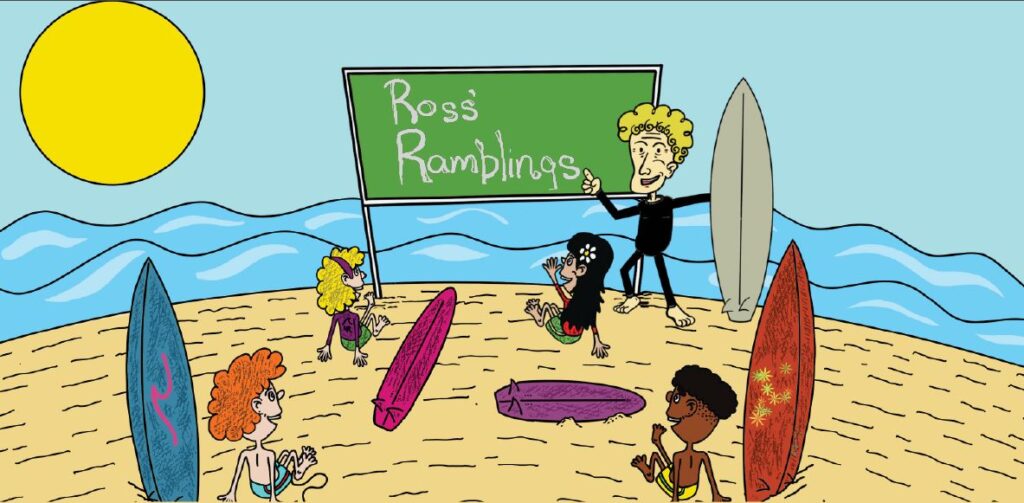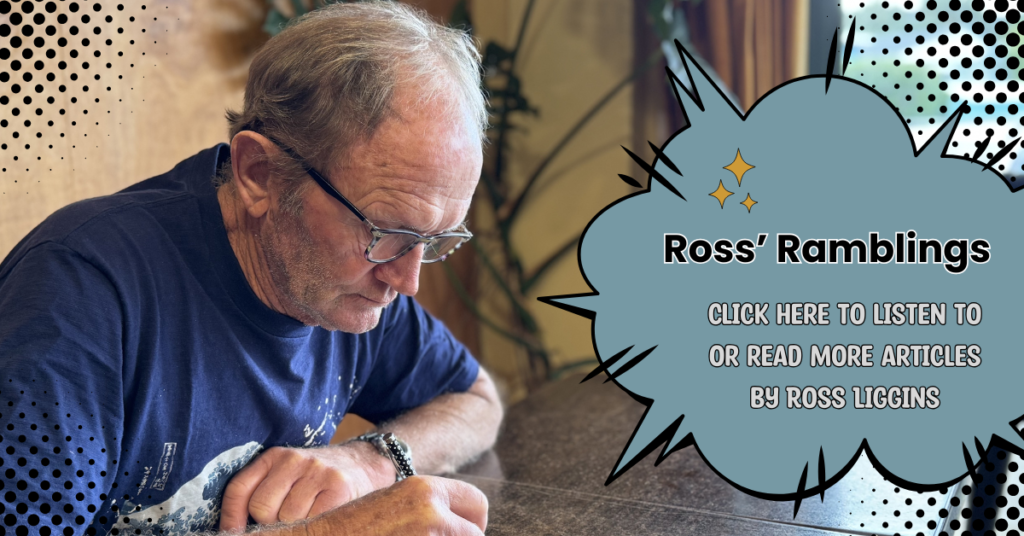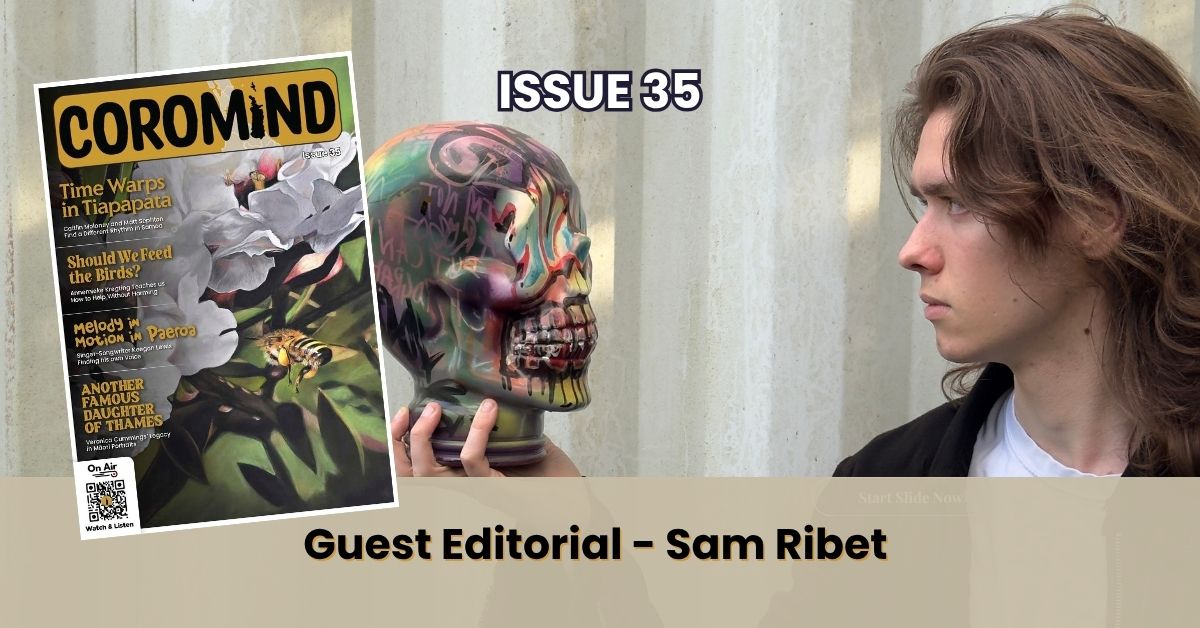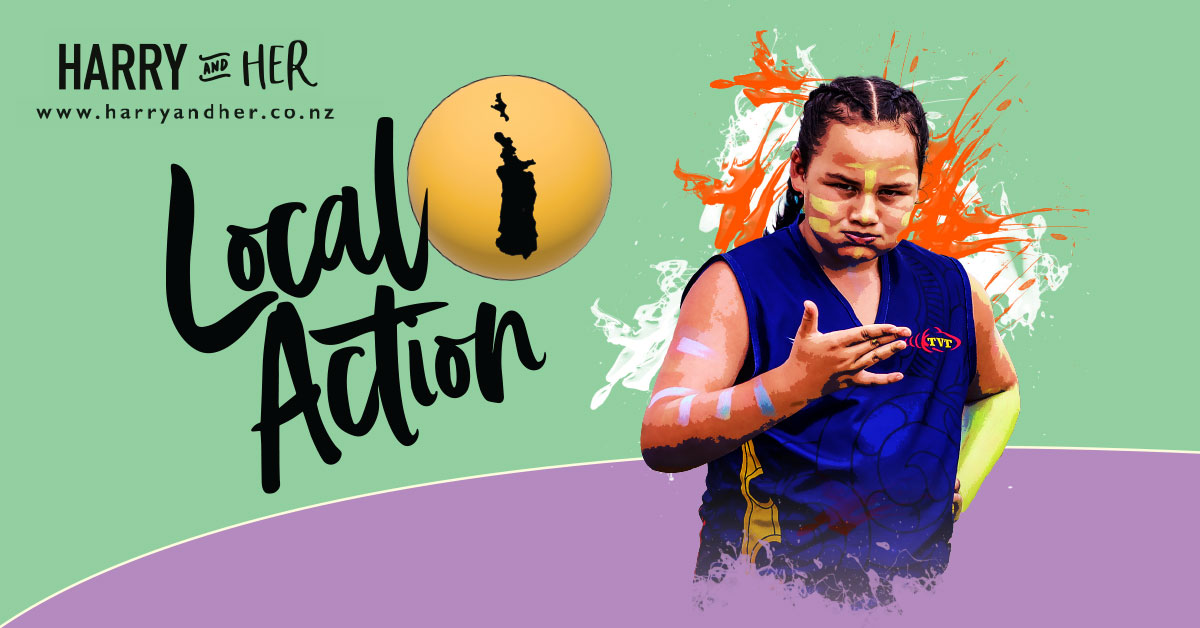
Ross Liggins is back with more anecdotes and insights
Despite having a myriad mixed feelings about education, I eventually became a high school teacher of accounting, economics, and any other subject they didn’t have a teacher for. I remember spending nights at my maths teacher colleague Bill’s house learning the year 11 maths for the next day’s lesson and going to class hoping like hell the bright students wouldn’t ask me questions I couldn’t answer. Parent teacher nights were interesting, with some parents blaming me for their little Johnny’s bad exam results. In very polite language I would tell them that their little darling was in fact a lazy little sod, or words to that effect. One frustrated father, who was a friend of the principal, threatened to try to get me fired over his son’s poor exam results. I heard later that he was going through a marriage break-up at the time and probably needed a punching bag. The principal apologised to me for his friend’s behaviour.
Unlike during my own high school days, we weren’t allowed to physically abuse, or emotionally abuse our students in any way. This to my mind was a fine principle, but I must admit that sometimes I felt like administering a slow and painful death to some of them. Because of this, you had to be quite creative in devising strategies for classroom management. When a disruptive student failed to respond to my cleverly designed in-class rules, there was always afternoon detention which would finish only when the offender had finished a two-page treatise on ‘Why I offended and how I could avoid such behaviour in the future’. This sometimes proved to be a very valuable learning experience for me. One girl wrote that she had witnessed her father beating her mother that morning and the police had arrived at their house. I didn’t feel good at all about the punishment I had inflicted, but it taught me to be more careful and more understanding about the trials that some of my students were faced with and that we teachers had no knowledge of.
One day it was announced that the new board of governors had decided that the school was to have a uniform. Well, you can imagine the uproar from parents who had moved from the city to the small island where the school was located, in order to be free from the restrictions of big-city schools and to lead a more laid-back lifestyle; not to mention the families who had been islanders for generations. The school was split, as were the staff, with some members agreeing with the uniform policy while others balked at the concept and the idea of spending valuable teaching time policing boys’ hoodies and the length of girls’ skirts and whether they were wearing jewellery. This divisiveness went on until a group of us teachers came up with the obvious solution. Those students whose parents wanted a uniform could wear one and those whose parents were opposed could wear mufti with a few restrictions attached. A nice compromise we thought, and that’s what actually happened. Of course, now the teachers were expected to police both a uniform and a mufti dress code, a part of our job that many of us turned a blind eye to. There were lots of justifications put forward for having school uniforms. I am sure you have already heard them. But for me uniforms are useful for police, firefighters, some medical professionals, sports teams, the armed forces and a few other groups. They have little educational value for either students or teachers. But hey, that’s just my thinking. So if you like to wear a uniform by all means … Some people even find them sexy; in fact I remember a very attractive nurse in uniform I once met … oh, but that’s another story.
My next teaching jobs were at English language schools in Japan, Auckland and here in Whitianga, where I taught at Coromandel Outdoor Language Centre for almost 25 years. The school motto was ‘Learning by doing’ and we employed very communicative methods of teaching, rather than sitting doing endless English grammar exercises. We were generally happy to police a strict policy of ‘English only’ while at school. This was a useful learning tool, given that the students were often from 10 or more different countries and needed a common language to speak to avoid the formation of separate nationality groups. It was more difficult for some, especially for those who had no English or whose only words were “yes” and “no”. “Hi, where are you from?” – “Yes” (and a smile). “What’s your name?” – “Yes”.
One such student was an elderly Japanese who, after coming back 5 times in consecutive years, never progressed past class 1. He loved being with young people and didn’t really mind his lack of fast progress. Others however soaked up language like a sponge. One Japanese boy started from scratch and became fluent in English and Swiss German (after marrying a Swiss girl), in a very short time. Students gave a speech on their graduation day. I will always remember one boy who began his speech “It’s a beautiful f…ing day. I had a f…ing good time here.” He continued in the same way using the ‘f’ word until the school director cut his speech short, by which time all the teachers were cringing and wondering where he had learnt to speak like that. ‘Learning by doing’ – perhaps he had taken our motto a little too much to heart! I am glad the ‘c’ word didn’t get a mention.
Part of the ‘learning by doing’ program included afternoon activities where students participated in indoor and outdoor leisure pursuits, like tennis, fishing, kayaking, pottery and many others. I was fortunate enough to be the surfing teacher and every afternoon took mainly Asian and European young people to beaches from Sailors Grave in the south to Whangapoua in the north. It was a dream job except on cold grey winter days, when I had to get into a wet wetsuit and pretend to be enthusiastic running down the beach into the freezing onshore waves. However, most of the time the students (and I) had a ball, and not only did they learn the essential life skill of surfing, but they also picked up a few other minor skills like learning to speak the English language.
Another exciting part of my job was attending English language marketing conferences to promote our school. One such conference was held in Saudi Arabia during the years the Saudi government was sending its young, almost exclusively male, graduates overseas to study English. I, along with 17 other members of our party from English schools all over NZ, were driven through heavily fortified barricades to the NZ embassy where the event was to take place. On arrival we hurried to the bar for our first beer in Saudi Arabia. The sale of alcohol is forbidden in that country. Interestingly, many of the Saudi language school agents also rushed to the bar for a drink, knowing that technically they were on NZ soil so the Saudi rules didn’t apply. They were fortunate there were no religious police around.
Apparently however, there were Saudi religious police in NZ during those years, keeping a secret eye on their student countrymen and occasionally women. In the school where I worked in Auckland, female students had to be accompanied by a male family member, and sometimes required a female teacher and an all-female class. I remember one young woman though, who enrolled for a month-long course in my class. She was about 19 or 20 and wore jeans, T shirts, had no head covering and wasn’t accompanied by a male family member. After a week in class, she disappeared and we never saw her again. There were whispers that she had been spotted by the Saudi authorities and sent back home. Makes you wonder if there are any undercover spies in our own schools and universities keeping an eye out for possible dissidents or those with extreme views.
(to be continued…)
– Words by Ross Liggins
Art by Lucas Rocha







